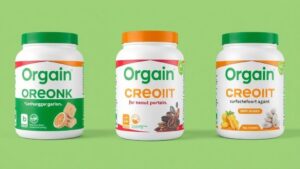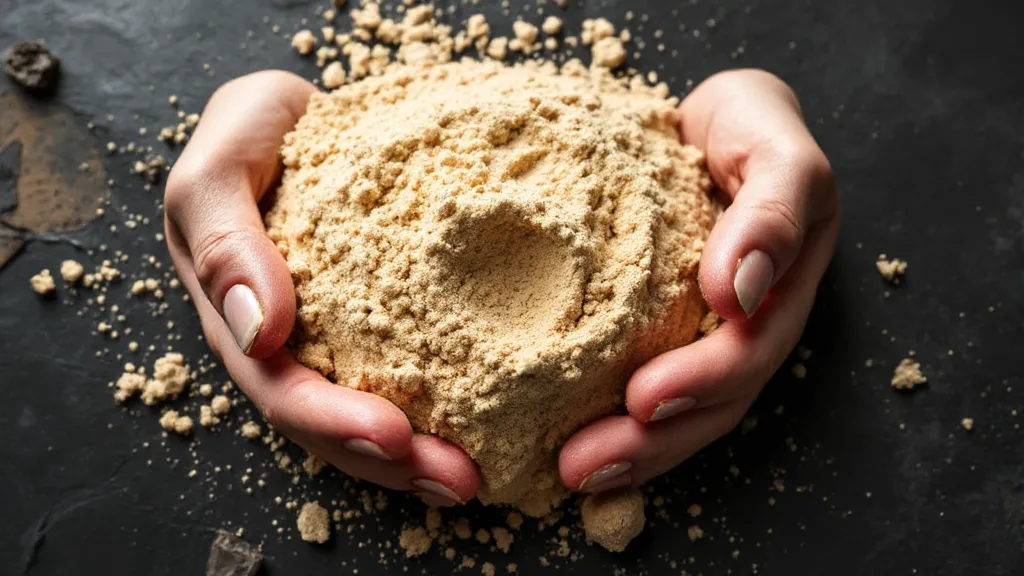Protein powders are a go-to for athletes, busy professionals, and health-conscious individuals who want a convenient boost in their daily nutrition. Among the rising stars in this arena is Orgain, a brand that prides itself on being clean, organic, and plant-based. Organ Protein Powder has heavy Metals
What Is Orgain Protein Powder?
Brand Background and Philosophy
Founded by Dr. Andrew Abraham, a cancer survivor and medical doctor, Orgain was born from a personal mission: to create nutritious, clean supplements with no junk and all goodness. The brand emphasizes:
USDA-certified organic ingredients
No artificial flavors or preservatives
Plant-based, keto, and collagen-based options
Orgain has grown into one of the most recognizable clean wellness brands on shelves today, featured at Whole Foods, Costco, and Amazon.
Types of Organ Protein Products
Orgain offers a range of protein powders and drinks:
Organic Plant-Based Protein Powder (most popular)
Simple Protein Powder (minimal ingredient version)
Whey Protein Powder
Collagen Peptides
Keto Protein Powder
Ready-to-Drink Protein Shakes
Most concerns about heavy metals focus on the plant-based line, which includes ingredients like rice, chia seeds, pea protein, and cocoa, all known to potentially accumulate trace heavy metals from the soil.
Understanding Heavy Metals in Food and Supplements
What Are Heavy Metals?
Heavy metals are naturally occurring elements that can be toxic in large amounts. The most commonly discussed topics in food safety include:
Lead
Cadmium
Arsenic
Mercury
In small amounts, some of these metals can exist in soil, water, and crops without issue. But long-term exposure to higher levels can be harmful, especially for children, pregnant women, and people with kidney issues.
How Do They Get Into Plant-Based Protein Powders?
This is where the issue gets complicated. Plants absorb nutrients—and everything else—from the soil. That includes heavy metals:
Peas and rice are grown in soil that may contain traces of lead or arsenic.
Chocolate/cocoa is often linked to cadmium exposure.
Water used in processing can also contribute trace contaminants.
Potential Health Risks of Heavy Metals
Heavy metals accumulate in the body over time, and chronic exposure may lead to:
Neurological damage
Kidney and liver problems
Developmental issues in children
Increased cancer risk
That said, the dose makes the poison. Just detecting a heavy metal doesn’t mean you’re in danger—it’s about how much and how often you consume it.
What Does the Research Say About Orgain and Heavy Metals?
2018 Clean Label Project Report
In 2018, the nonprofit Clean Label Project tested over 130 popular protein powders for contaminants. Orgain appeared on the list as having detectable levels of heavy metals, including lead and cadmium.
However, it’s important to note:
Many plant-based brands tested showed similar results.
Animal-based proteins generally had fewer heavy metals.
The Clean Label Project’s testing methods and transparency were criticized by some industry experts.
Independent Lab Testing Results
Third-party lab tests (from groups like ConsumerLab and Healthline) found that Orgain’s levels of heavy metals were below FDA safety thresholds, though still present in trace amounts.
Orgain has responded by saying that:
Heavy metals occur naturally in soil and water. We rigorously test all our products to ensure they meet or exceed regulatory and internal safety standards.”
Response from Orgain
Orgain issued statements affirming its commitment to quality and safety. According to them:
Every batch undergoes third-party testing
Results are reviewed for contaminants, including heavy metals
They aim to keep levels as low as possible while remaining within safe limits
Heavy Metal Limits: What’s Considered Safe?
FDA Guidelines and Regulations
The U.S. Food & Drug Administration (FDA) has not set formal limits for heavy metals in supplements, but here are some benchmarks:
Lead: 0.5 to 3 micrograms per day for food products
Cadmium: 4.1 micrograms/day (for a 50kg adult)
Arsenic (inorganic): 10 parts per billion (in drinking water)
Prop 65 Warning Labels
In California, Proposition 65 requires products with certain levels of heavy metals to carry a warning label—even if they’re still safe by federal standards.
Some Orgain products carry a Prop 65 label, not because they’re unsafe, but because they exceed California’s ultra-conservative thresholds. Organ Protein Powder has heavy Metals
International Standards Compared
Europe tends to be stricter than the U.S.
Canada and Australia also have defined thresholds for cadmium and lead in supplements.
Orgain has been found to generally meet or stay within global standards.
Does Orgain Meet Safety Standards?
Quality Control and Testing Procedures
Orgain reports using:
ISO-accredited third-party labs
Regular audits of sourcing farms
Internal quality checks for heavy metals, microbes, and allergens
Third-Party Certifications
While not all products are NSF or USP certified, Orgain holds:
USDA Organic
Non-GMO Project Verified
Certified Vegan (on most plant-based lines)
Some transparency critics want Orgain to publish lab reports publicly, which it currently does not.
Customer Transparency and Labeling
Although they disclose ingredients and manufacturing standards, Orgain does not publish heavy metal test results directly on its site. But they do respond to customer inquiries with more information if requested. Organ Protein Powder has heavy Metals
How Does Orgain Compare to Other Protein Brands?
Orgain vs. Vega
Both are plant-based and have similar risk profiles.
Vega is also tested for heavy metals and has faced scrutiny.
Orgain is often more affordable.
Orgain vs. Garden of Life
Garden of Life is USDA Organic and NSF Certified.
It also has Prop 65 warnings on many products.
Similar levels of heavy metals in third-party tests.

Orgain vs. Vital Proteins
Vital Proteins is a collagen brand (animal-based) and tends to have lower heavy metal content.
But it doesn’t serve vegans or vegetarians.
Should You Be Worried About Heavy Metals in Orgain?
Scientific Perspective
According to toxicologists, trace amounts of heavy metals in food and supplements are unavoidable. What matters is:
How often do you take them
What other sources of exposure do you have (water, food, air)
Your age and health status
Orgain doesn’t exceed FDA levels, and for most healthy adults, it’s unlikely to pose harm when consumed in moderation.
Realistic Exposure Levels
You’ll get more heavy metals from:
Eating brown rice daily
Drinking tap water in old pipes
Smoking or living near industrial areas
If Orgain is your main exposure source, your risk is very low.
Risk vs. Benefit
For most people, the nutritional benefits of clean protein and increased fiber from Orgain outweigh potential risks. Still, it’s good to stay informed and rotate brands or protein sources.
Tips to Reduce Exposure to Heavy Metals from Protein Powders
✅ Rotate Your Protein Brands
Avoid relying on one product daily for months.
✅ Diversify Protein Sources
Add eggs, lentils, chicken, tofu, or fish to your diet to minimize powder reliance.
✅ Ask for Third-Party Test Results
Brands like Orgain will sometimes provide data if you email them.
✅ Use Smaller Servings
Cutting your serving size in half and adding whole foods to smoothies helps dilute exposure. Organ Protein Powder has heavy Metals
What Consumers Are Saying
Positive Reviews
Taste is better than most plant proteins
Smooth texture in shakes
Organic ingredients
Affordable and widely available
Complaints
Some dislike the aftertaste
Limited flavor variety
Worry about the lack of public lab reports
Online Forums and Health Blogs
Most forums agree Orgain is “better than average” when it comes to safety, but recommend consuming it as part of a well-rounded diet, not the only protein source.
Who Should (or Shouldn’t) Use Orgain Protein?
Best For:
Busy professionals needing quick nutrition
Vegans and vegetarians
People want organic, plant-based options
Budget-conscious buyers
Caution For:
Pregnant women
Kids (due to long-term sensitivity to metals)
Those with kidney or liver conditions
People living in areas with other metal exposures
Conclusion
So, does Orgain protein powder have heavy metals?
Yes—but so does virtually every other plant-based protein. The key is that Orgain’s levels remain within acceptable safety limits based on FDA guidelines and global standards. If you’re using it occasionally and not in excessive doses, it’s a safe, clean, and high-quality supplement choice.
The bigger issue isn’t whether heavy metals are present, but how much, how often, and what else you’re exposed to in your environment.
As always, variety is your best friend in nutrition. Mix things up, stay informed, and enjoy your health journey.
FAQs
1. Is Orgain protein powder tested for heavy metals?
Yes. Orgain confirms that each batch is third-party tested for heavy metals like lead, cadmium, and arsenic.
2. Why does Orgain have a Prop 65 warning?
This label is required under California law if products contain even trace levels of heavy metals, often well below federal safety standards.
3. Is Orgain safe to drink every day?
Yes, for most healthy adults. But it’s best to rotate with other protein sources and avoid over-reliance on any single supplement.
4. How does Orgain compare to other protein powders for safety?
Orgain performs similarly to other top plant-based brands and meets FDA guidelines. It’s considered safe when used in moderation.
5. Can I request Orgain’s lab results?
Orgain does not publish lab results publicly but may provide additional safety documentation if contacted directly.

